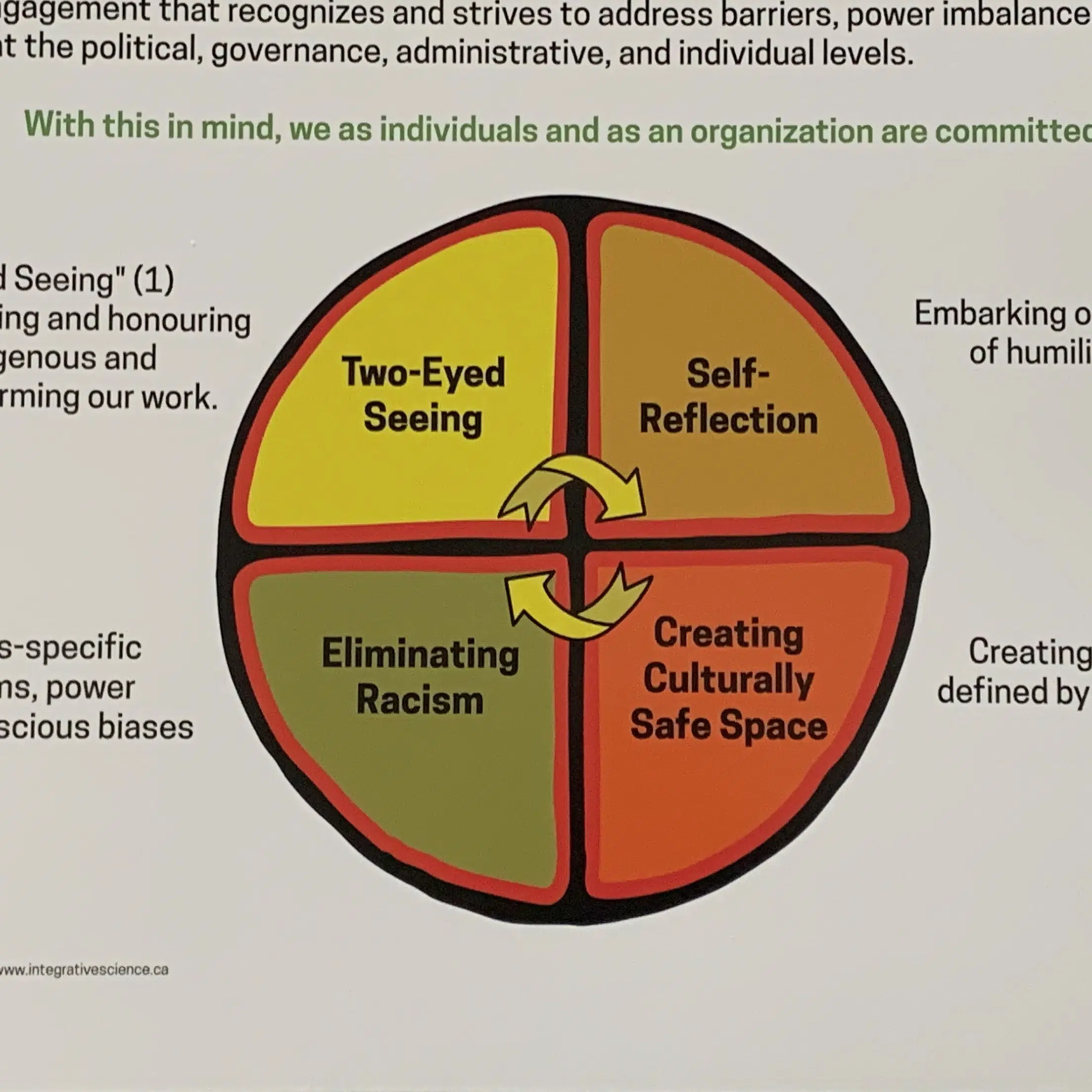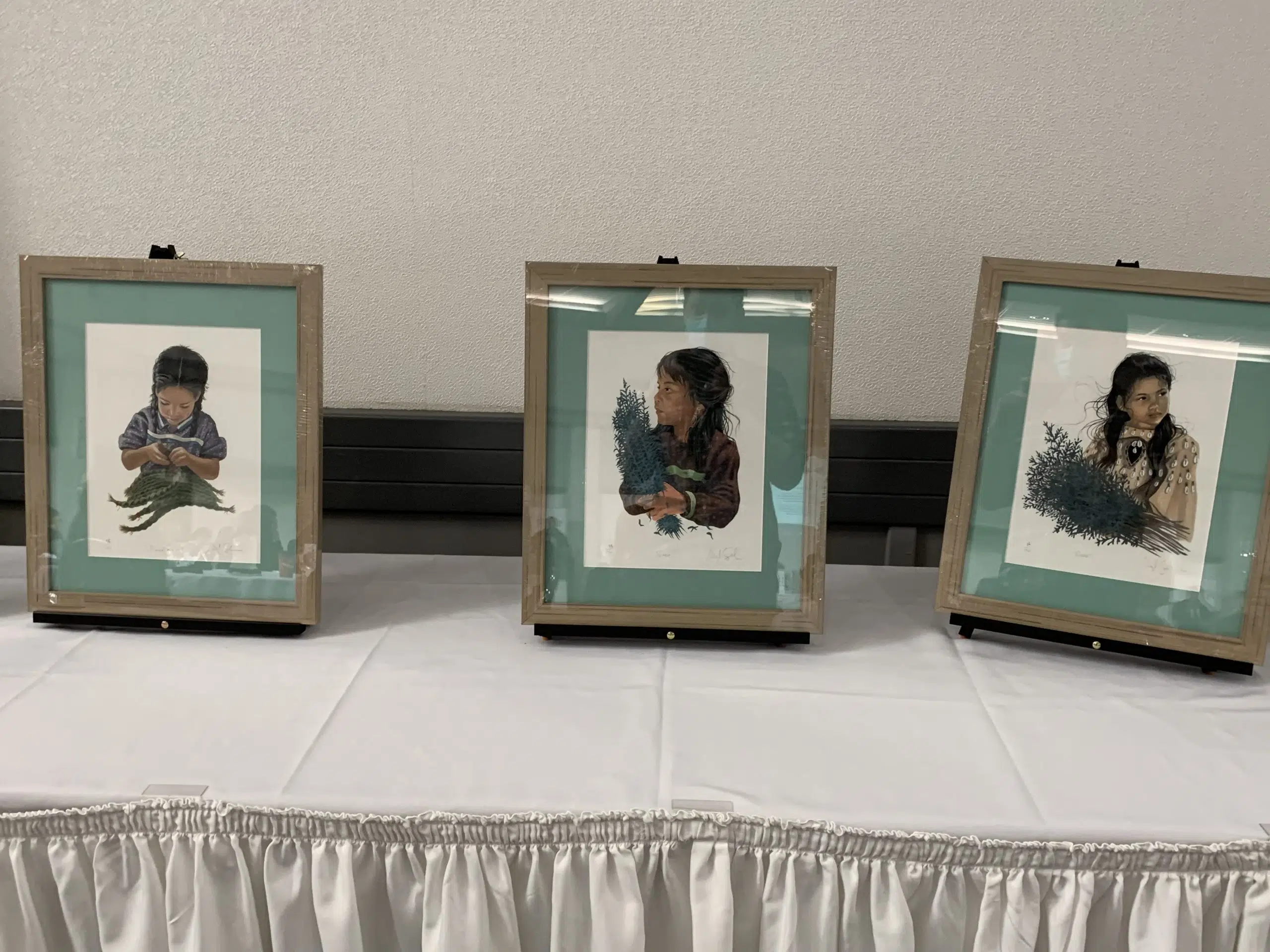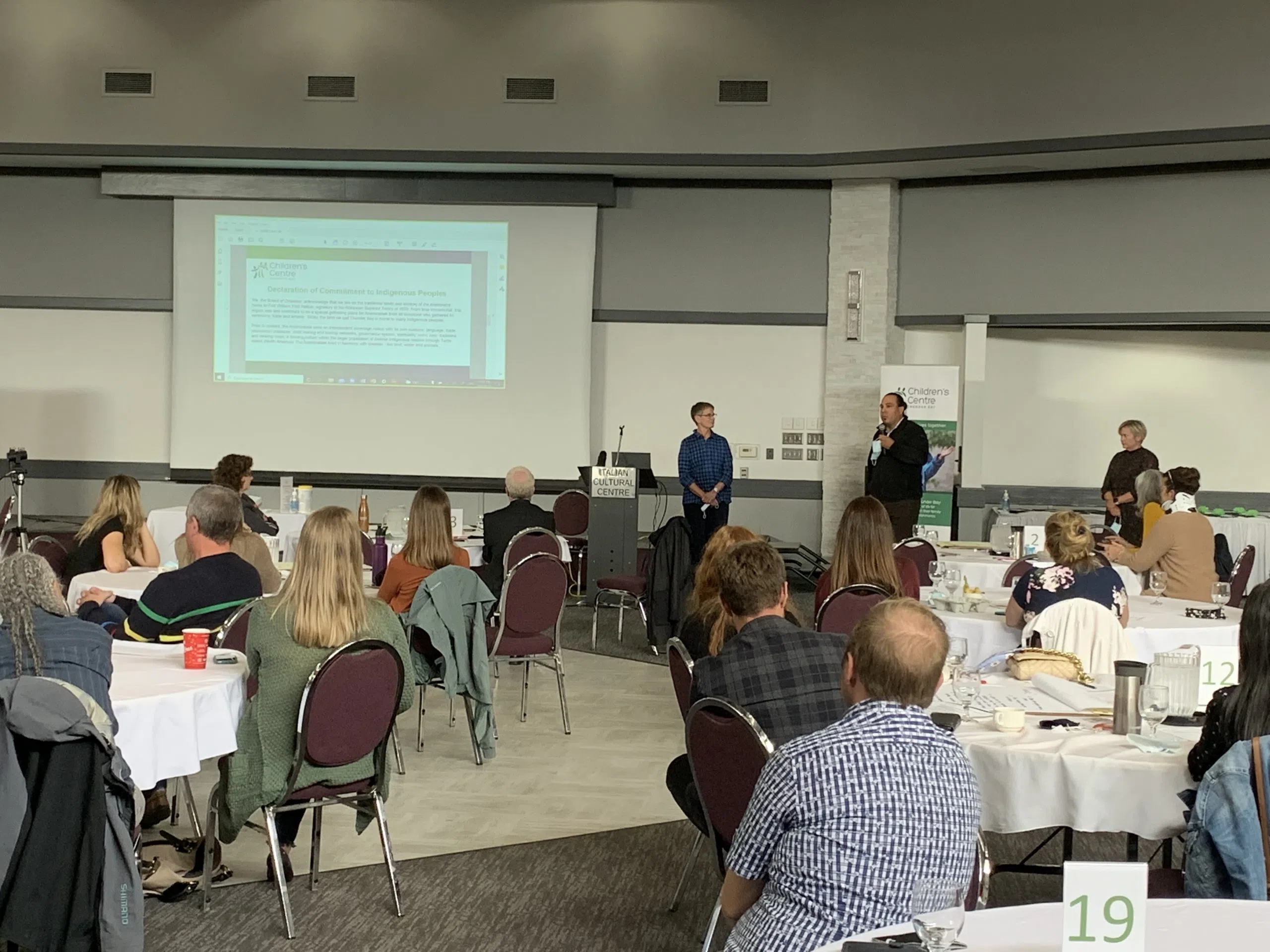In a gathering held Tuesday morning, Children’s Centre Thunder Bay made it known they were standing with the Indigenous community.
Directors and staff released a declaration committing the organization to supporting Indigenous peoples, by addressing cultural barriers. power imbalances, and biases that are rooted in the health systems at the political, governance, administrative, and individual levels.
The event took place at the Italian Cultural Centre and had around 100 spectators, public health and safety guidelines in place.
Children’s Centre Thunder Bay CEO Diane Walker explains more about the gathering and the importance.
“It’s been a day of looking at how Children’s Centre can do better in the equity, diversity and inclusion space,” explains Walker. “Today in particular has been the release of our Declaration of Commitment to Indigenous People’s, which is something that has been worked on the past couple of years by our board. It is a statement by the board of directors to the community and the organization about how we understand colonization and the treatment of First Nation’s and Indigenous People has impacted their health and health outcomes, and what we want to do in relation to those things that have occurred.”

An important part of this process included consultation with the community and various groups.
Outgoing Board Member Paul Francis played a significant role in this, and explains the experience.
“We were able to engage some Indigenous staff within the organization, and we were able to engage with the Indigenous community, so one person doesn’t speak for a community,” says Francis. “I think the important piece of this was the truth part, and we really worked and there’s some really strong statements in there, and I think it really grounds us into the truth telling part. There’s the talk of theft of land and genocide, and it takes a while for people to understand the history in our country.”
Part of the declaration includes adopting a “Two-Eyed Seeing” approach in recognizing and honouring strengths of Indigenous and Western ways to determine their work.
“It speaks to the philosophy of honouring Western knowledge, and I think a lot of people think Indigenous people don’t value that either, but I think to a degree we do,” says Francis. “But a lot of times our knowledge hasn’t really been valued, and this is where it speaks to honouring both ways of knowing and knowledge systems and working together and respecting those two. When we can do that, it really speaks to the diversity, and inclusion, and respect and some of the things this document speaks about.”
CEO Walker echoed Francis’ thoughts, calling “Two-Eyed Seeing” a very powerful concept based on respect between various groups and communities.

(STAFF PHOTO)



